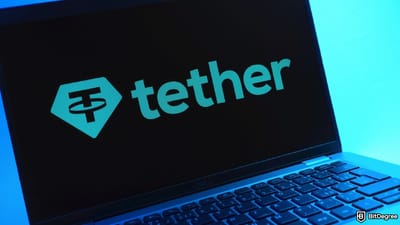Stop overpaying - start transferring money with Ogvio. Sign up, invite friends & grab Rewards now! 🎁
US Treasury Proposes On-Chain ID Checks to Fight Crypto Crime
Key Takeaways
- The US Treasury seeks public feedback on digital IDs and new technology to combat crypto-linked financial crimes;
- Proposal includes embedding KYC and AML checks directly into DeFi code so transactions only run after verifying user credentials;
- Digital IDs could lower compliance costs and improve privacy, but challenges remain over data handling, access, and fairness.
The US Treasury is asking the public for input on how new technology, including digital identity systems, could help limit illegal activity in cryptocurrency.
People can submit comments until October 17, 2025, after which the department will prepare a report for Congress and may follow up with new rules or guidance.
One option under review is to add identity checks directly into decentralized finance (DeFi) programs. In this setup, a transaction would only go through if the software confirms the user’s identity.

Did you know?
Subscribe - We publish new crypto explainer videos every week!
How Does Cryptocurrency Work? (Explained with Animation)


This would place Know Your Customer (KYC) and Anti-Money Laundering (AML) checks inside the code itself, rather than relying only on outside processes.
The Treasury highlighted that digital credentials could take different forms, such as government-issued documents, biometric data, or portable IDs that can be used across platforms. According to the department, these tools might lower compliance costs while also improving privacy protections.
Another potential advantage is early detection of illegal transactions. If services can screen for money laundering, sanctions evasion, or terrorist financing before funds are moved, both financial institutions and DeFi platforms could stop high-risk activity sooner.
The consultation also asks for views on how AI, APIs, and blockchain tracking tools could be used without putting too much pressure on smaller developers or infringing on civil liberties.
At the same time, the department noted several concerns, including how to handle sensitive data, how to make identity checks work across different systems, and how to avoid excluding people without traditional identification.
The US Securities and Exchange Commission (SEC) recently introduced a plan aimed at updating how digital assets are regulated in the country. What does the plan include? Read the full story.






















